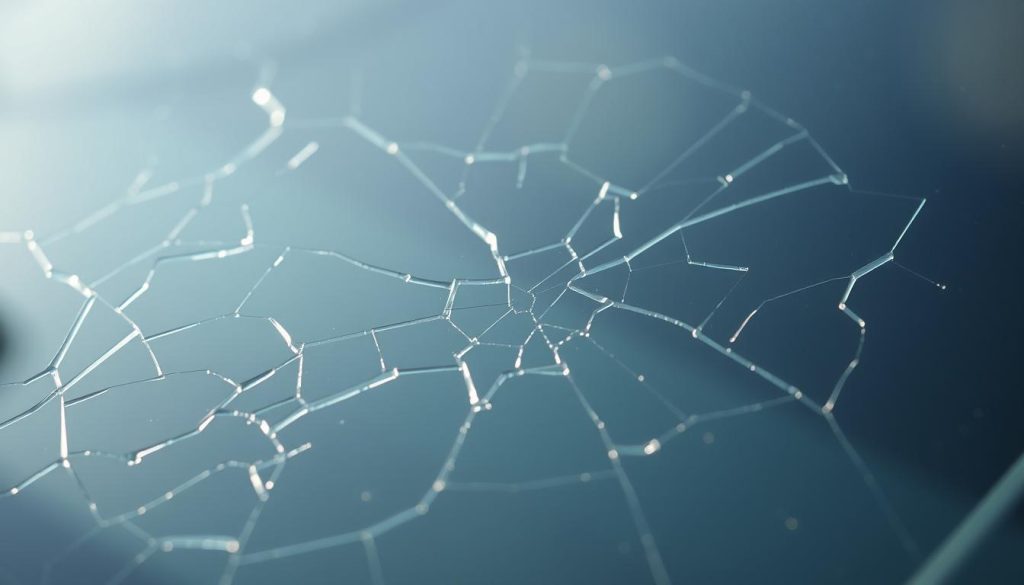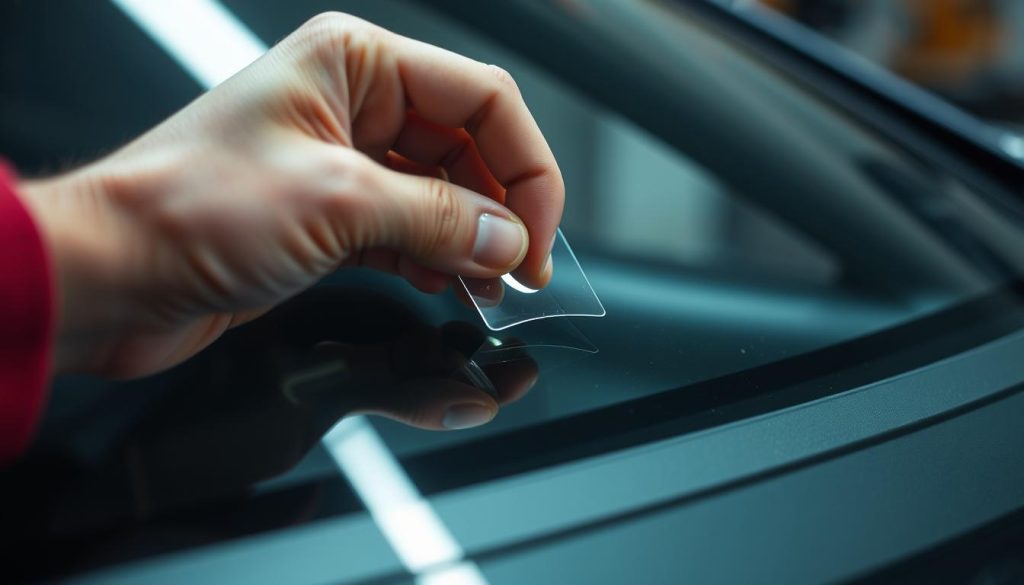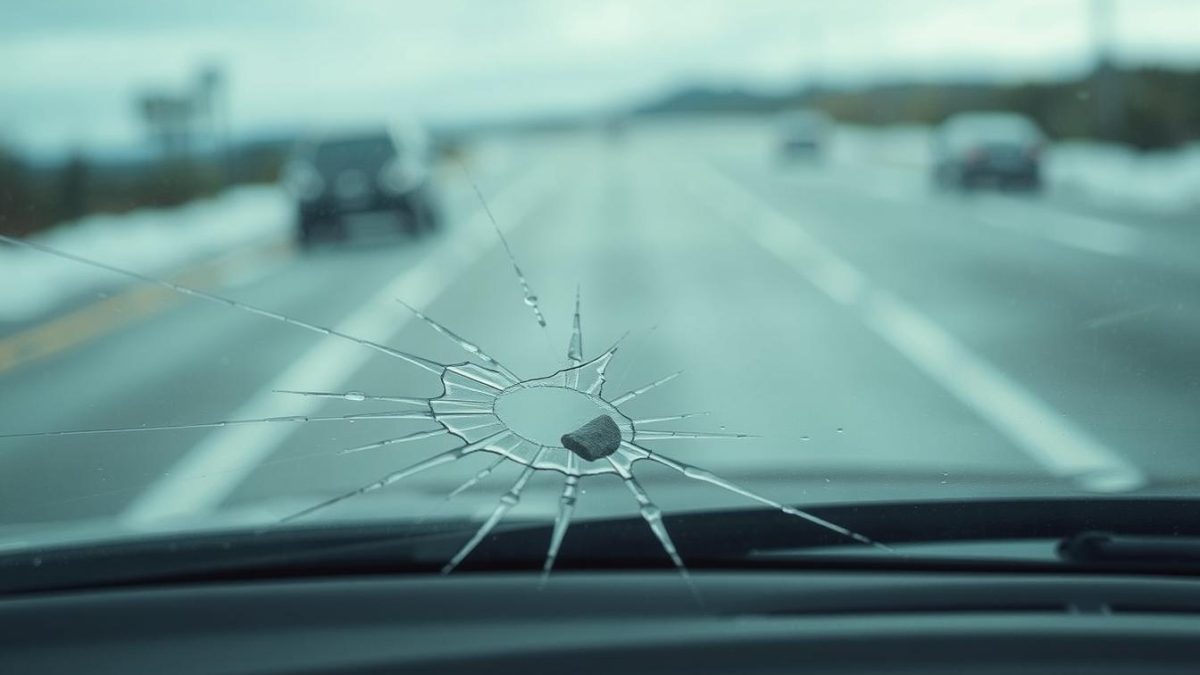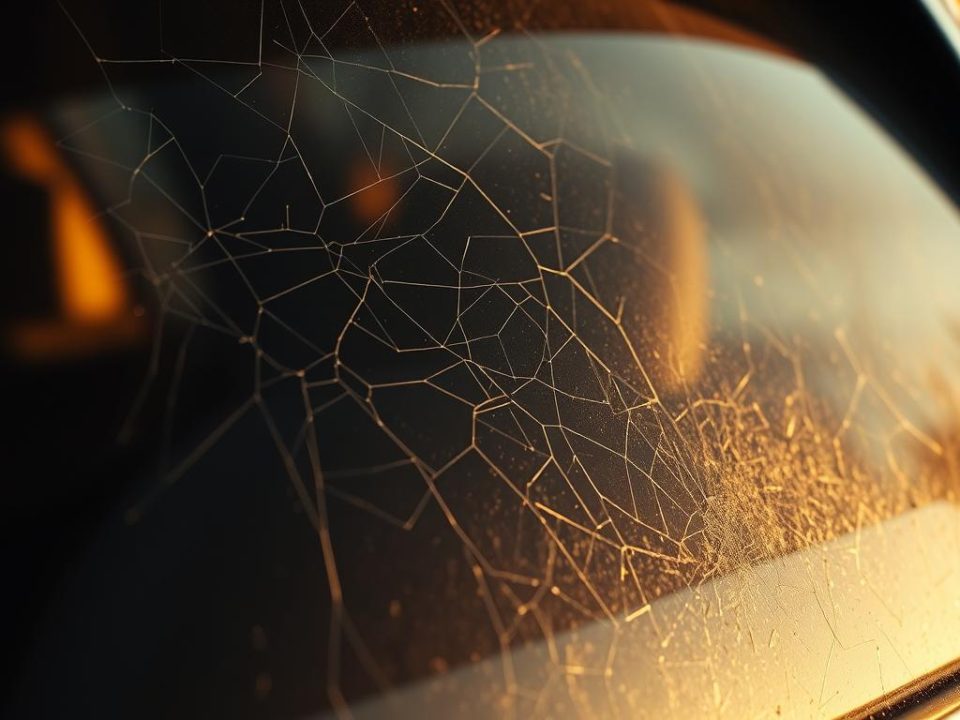
DIY vs Professional Windshield Repair: Which Is Better?

How Auto Glass Condition Impacts Your Car’s Resale Value
As a driver, you’re likely no stranger to the frustration of discovering a windshield chip. These small damages can be more than just a minor annoyance; if left unaddressed, they can lead to more serious problems.
Understanding the common causes of these chips is crucial for prevention. Whether it’s a stray rock on the highway or a sudden temperature change, knowing what leads to chip formation can help you take proactive steps to protect your vehicle.
This article will delve into the most common causes of windshield damage and provide you with practical tips on how to prevent them, ensuring your safety on the road.
Key Takeaways
- Understanding the causes of windshield chips can help in prevention.
- Common causes include debris on the road and temperature fluctuations.
- Preventive measures can significantly reduce the risk of chip formation.
- Regular maintenance is key to extending the life of your windshield.
- Prompt repair of chips can prevent further damage.
Understanding Windshield Chips and Their Impact
Recognizing the causes and consequences of windshield chips is vital for drivers to take preventive measures and ensure their safety on the road. Windshield chips, often resulting from road debris or gravel damage, can compromise the integrity of your vehicle’s windshield.
What Constitutes a Windshield Chip?
A windshield chip is typically a small break or crack in the glass, usually caused by impact from rocks, gravel, or other debris. These chips can vary in size and shape, and their severity can depend on several factors, including the size of the chip and its location on the windshield.
Types of Windshield Chips:
- Combination break: A mix of different types of damage, including chips and cracks.
- Half-moon chip: A semicircular chip, often caused by a significant impact.
- Star break: A chip with short cracks emanating from the center, resembling a star.
- Bullseye chip: A circular chip with a clear center, indicating a direct impact.

Safety Hazards of Untreated Chips
If left untreated, windshield chips can pose significant safety hazards. The structural integrity of the windshield is compromised, potentially leading to further damage or even shattering in extreme conditions. Moreover, untreated chips can obstruct the driver’s view, especially if they are located in the line of sight.
Risks Associated with Untreated Windshield Chips:
- Increased risk of further damage or cracking.
- Potential for windshield shattering due to stress or impact.
- Obstruction of the driver’s view, affecting safety.
How Chips Progress to Cracked Glass
Windshield chips can progress to more significant cracks due to various factors, including temperature fluctuations, driving conditions, and additional impacts. As the chip spreads, it can weaken the windshield further, necessitating costly repairs or even replacement.
To prevent such progression, it’s crucial to address windshield chips promptly. Consulting a professional service like Miracle Auto Glass can ensure that your windshield is repaired or replaced correctly, maintaining your safety on the road.
If you’re dealing with windshield chips or other glass damage, consider reaching out to Miracle Auto Glass for expert assistance. Their professional services can help restore your vehicle’s windshield to its original condition, ensuring your continued safety and comfort on the road.
Common Causes of Windshield Chips
As you drive, your windshield is exposed to numerous risks that can lead to chips and cracks. Understanding these causes is crucial for prevention and timely repair.
Road Debris and Gravel Damage
One of the most common causes of windshield chips is road debris. Gravel, rocks, and other materials on the road can be kicked up by tires or thrown by other vehicles, hitting your windshield with significant force. This impact can cause chips, especially if the debris is sharp or travels at high speeds.
Weather-Related Chip Causes
Weather conditions also play a significant role in causing windshield chips. Extreme weather can directly or indirectly lead to windshield damage.
Extreme Temperature Fluctuations
Significant changes in temperature can cause your windshield to expand and contract. This stress can make the glass more susceptible to chipping, especially if there are already small damages or imperfections.
Hail and Storm Damage
Hailstorms are particularly hazardous for windshields. Hailstones can hit the windshield with considerable force, causing chips or even cracks. Similarly, strong winds during storms can carry debris that damages the windshield.
Construction Zones and Highway Hazards
Driving through construction zones or highways with loose gravel increases the risk of windshield chips. Construction activities can generate debris, and the lack of proper road maintenance can lead to hazardous conditions for drivers.
If you’ve experienced a windshield chip, it’s essential to address it promptly to prevent further damage. Miracle Auto Glass is here to help you repair or replace your windshield, ensuring your safety on the road. Don’t wait until a small chip becomes a significant crack; contact us today to schedule your appointment.
Effective Prevention Strategies
Effective prevention strategies are crucial for maintaining a chip-free windshield. By adopting the right techniques and understanding the causes of windshield chips, you can significantly reduce the risk of damage.
Defensive Driving Techniques
Defensive driving is one of the most effective ways to prevent windshield chips. This involves being aware of your surroundings, maintaining a safe distance from other vehicles, and avoiding construction zones or areas with loose gravel.
- Maintain a safe distance from trucks or construction vehicles that may throw debris.
- Be cautious in areas with loose gravel or rocks.
- Avoid following other vehicles too closely.
Windshield Protection Options
In addition to defensive driving, there are several windshield protection options available. These include protective films and coatings that can help absorb impacts and prevent chips.
Protective Films and Coatings
Protective films and coatings are designed to absorb impacts from debris, reducing the risk of windshield chips. These films are typically made from durable materials that can withstand various weather conditions.
Key benefits of protective films and coatings include:
- Impact resistance
- UV protection
- Easy maintenance
Regular Maintenance Checks
Regular maintenance checks are essential for identifying any potential issues before they become major problems. This includes inspecting your windshield for any signs of damage or wear.
During your regular maintenance checks, look for:
- Any signs of chips or cracks
- Damage from debris or weather conditions
- The condition of your windshield wipers
What to Do When You Notice a Chip
If you notice a chip in your windshield, it’s essential to address it promptly. Ignoring the issue can lead to further damage and potentially costly repairs.

- Assess the size and location of the chip
- Contact a professional for repair or replacement
- Avoid driving in harsh weather conditions
For professional windshield repair or replacement, consider contacting Miracle Auto Glass to ensure your vehicle is safe and secure on the road.
Conclusion
Understanding the causes of windshield chips, such as gravel damage, is crucial to preventing them. By adopting defensive driving techniques and exploring windshield protection options, you can significantly reduce the risk of damage.
When you notice a chip, taking prompt action can prevent it from progressing to a more extensive crack. By addressing the issue early, you can avoid costly repairs and ensure your safety on the road.
For professional windshield repair or replacement services, consider hiring Miracle Auto Glass. Their expertise will ensure that your vehicle’s glass is restored to its original condition, providing you with a safe and clear view of the road ahead.




